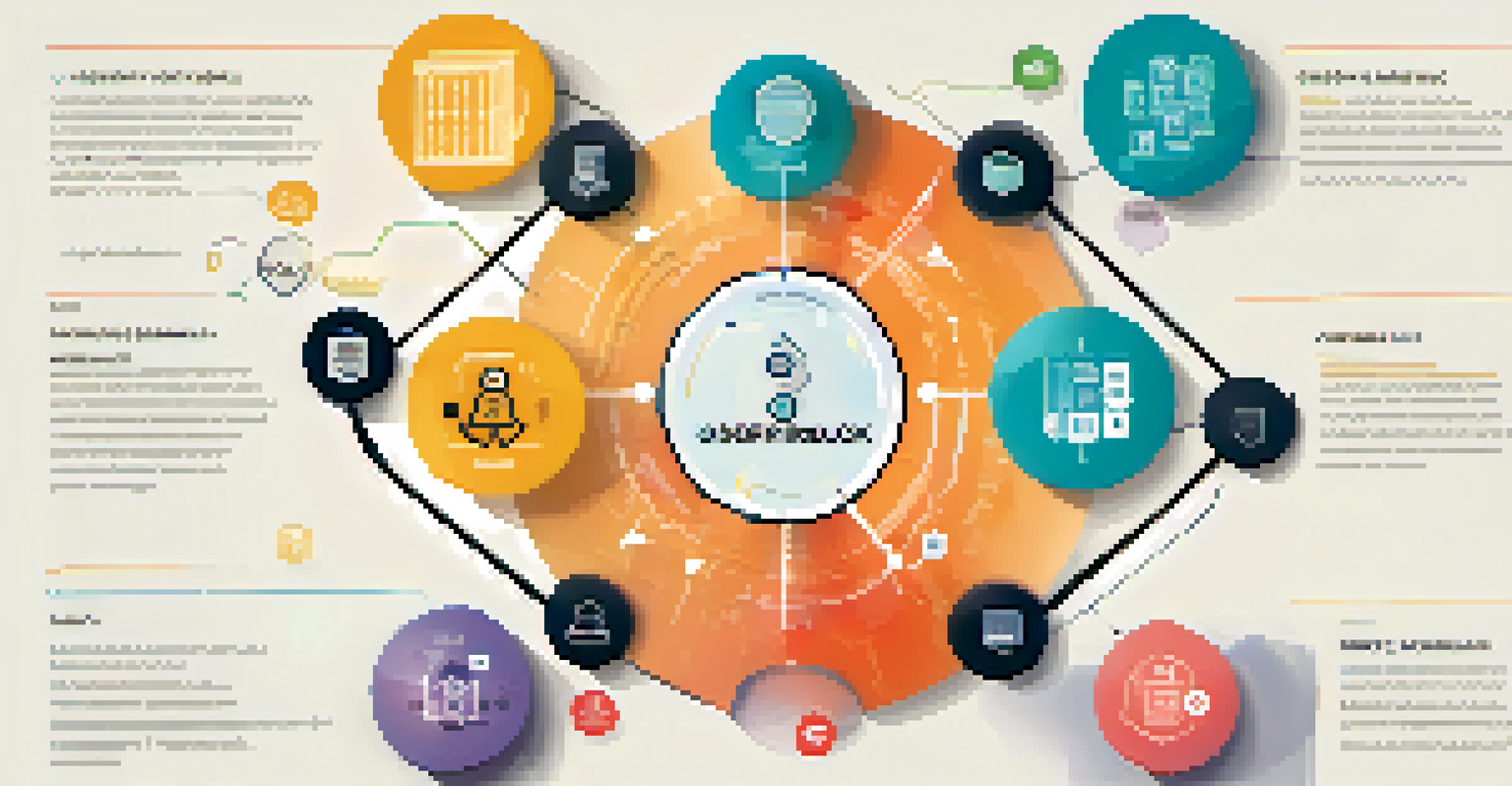User Consent and Data Privacy in Ethereum Applications

Understanding User Consent in the Digital Age
User consent has become a cornerstone of online interactions, especially in blockchain environments like Ethereum. With the rise of decentralized applications (dApps), understanding what users are agreeing to is crucial. Consent isn't just about a simple 'yes' or 'no'; it involves clear and transparent communication about how their data will be used.
In the world of blockchain, user consent isn't merely a formality; it's the foundation of trust.
In Ethereum applications, the concept of consent extends beyond traditional data sharing. Users need to be informed of the implications of their consent, especially regarding smart contracts and decentralized storage. This level of understanding empowers users, making them active participants in their data privacy journey.
Moreover, the decentralized nature of Ethereum means that once consent is given, reversing it can be complicated. This highlights the importance of ensuring that users fully understand what they are agreeing to before they interact with a dApp. Clear consent forms and user education are essential to foster trust in these systems.
The Role of Smart Contracts in Data Privacy
Smart contracts are self-executing contracts with the terms of the agreement directly written into code. They play a pivotal role in how consent is managed in Ethereum applications. When users consent to data sharing or transactions, smart contracts can automate the process, ensuring that conditions are met without the need for intermediaries.

However, while smart contracts enhance efficiency, they also raise questions about data privacy. If not designed with privacy in mind, these contracts can expose sensitive user information to the public blockchain. This is a significant concern, as Ethereum's transparency can conflict with the need for personal data protection.
User Empowerment in Data Control
Ethereum applications enable users to control their data, shifting power from centralized entities to individuals.
To address these issues, developers must implement privacy-preserving techniques, such as zero-knowledge proofs or other cryptographic methods, to safeguard user consent and data. This way, they can maintain the benefits of smart contracts while protecting user privacy.
The Importance of Transparency in Data Handling
Transparency is vital in building trust between users and Ethereum applications. Users should have easy access to information about how their data is collected, stored, and used. This empowers users to make informed decisions about their consent and the potential risks involved.
Data privacy is not just a legal obligation; it’s a moral responsibility to protect users’ rights.
Many dApps are starting to adopt transparency frameworks that outline their data handling practices. These frameworks can include detailed privacy policies, user-friendly consent forms, and clear explanations of data usage. By prioritizing transparency, developers can foster a sense of security and confidence among users.
Moreover, transparency doesn't just benefit users; it can also enhance the reputation of the application. A dApp that openly communicates its data practices is more likely to attract and retain users, creating a positive feedback loop of trust and engagement.
User Empowerment Through Data Ownership
One of the core principles of blockchain technology is user empowerment, particularly in terms of data ownership. In Ethereum applications, users have the ability to control their own data, deciding when and how it is shared. This shifts the power dynamics away from centralized entities to individual users.
By providing users with data ownership, Ethereum applications can enhance user consent. When individuals feel they have control over their information, they are more likely to engage with the platform and consent to data sharing. This level of empowerment is a significant shift from traditional models where users often have little say in how their data is used.
Importance of Transparency
Clear communication about data handling practices builds trust and confidence among users of decentralized applications.
Furthermore, promoting data ownership can lead to innovative business models. For instance, users could potentially monetize their data or choose to share it with specific parties, leading to a more equitable data economy.
Challenges in Implementing Data Privacy Policies
Despite the benefits of Ethereum and blockchain technology, implementing effective data privacy policies presents unique challenges. The immutable nature of blockchain means that once data is recorded, it cannot be altered or deleted. This poses a significant hurdle for compliance with data privacy regulations like the GDPR.
Developers must navigate the fine line between transparency and privacy, ensuring that users are informed without exposing sensitive information. Crafting policies that comply with legal standards while maintaining the core principles of decentralization can be a daunting task.
To overcome these challenges, collaboration among developers, legal experts, and privacy advocates is essential. By working together, they can create frameworks that respect user privacy while leveraging the innovative aspects of Ethereum technology.
The Future of User Consent in Ethereum Applications
As the landscape of Ethereum applications continues to evolve, so too will the concept of user consent. The growing awareness of data privacy issues among users is pushing developers to prioritize consent mechanisms that are both secure and user-friendly. Future dApps are likely to integrate more sophisticated consent management tools, making it easier for users to understand their rights.
Additionally, the integration of artificial intelligence and machine learning may enhance consent processes. These technologies can analyze user behavior and preferences, providing more personalized consent experiences that align with individual user needs. This will likely lead to higher levels of user engagement and satisfaction.
Challenges in Privacy Compliance
The immutable nature of blockchain complicates adherence to data privacy regulations, requiring careful policy crafting.
Ultimately, the future of user consent in Ethereum applications hinges on a balance between innovation and privacy. By adopting user-centric approaches and continuously evolving their practices, developers can create a more trustworthy ecosystem for all.
Conclusion: Building a Trustworthy Ethereum Ecosystem
In conclusion, user consent and data privacy are paramount in the realm of Ethereum applications. As these technologies continue to gain traction, prioritizing transparency, user empowerment, and robust privacy policies will be crucial for their success. By fostering a culture of trust, developers can encourage wider adoption and create a sustainable ecosystem.
The journey toward effective data privacy in Ethereum is ongoing, but the potential for innovation is immense. As developers explore new tools and techniques for managing consent, the focus must remain on the users and their rights. This user-first approach will not only enhance individual experiences but also strengthen the overall integrity of the Ethereum network.

Ultimately, by embracing the principles of transparency, empowerment, and collaboration, the Ethereum community can pave the way for a future where user consent and data privacy are seamlessly integrated, fostering trust and engagement in decentralized applications.